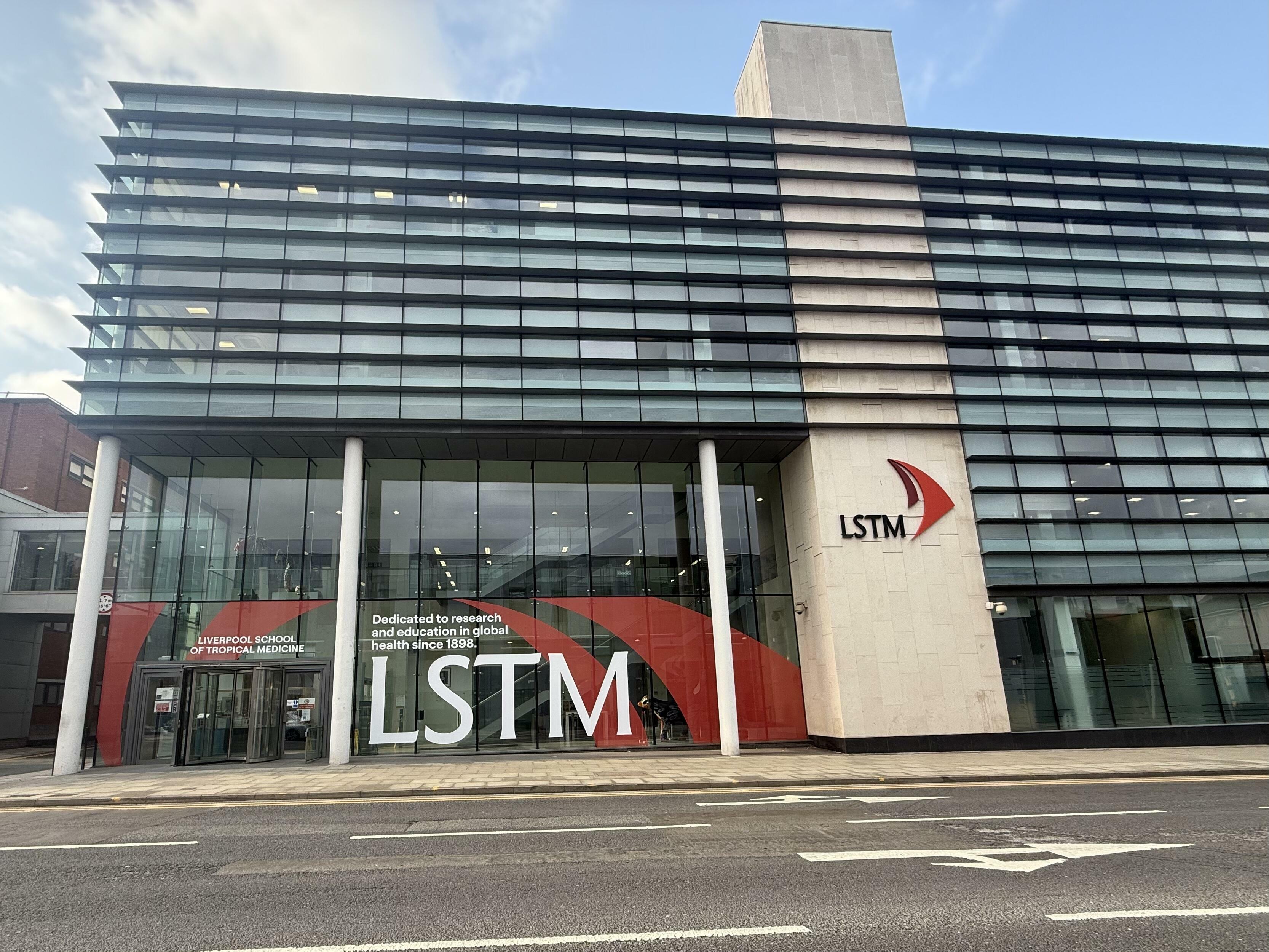
Next generation digital labs, AI-powered training facilities and clinical simulation suites will be built at Liverpool School of Tropical Medicine, bridging critical skills gaps in advanced technologies to support the city region’s ambitions to be an international leader in life sciences.
LSTM has been awarded close to £2.5m from the Office for Students (OfS) to enhance its infrastructure to deliver a new range of training provision, supporting students and health professionals to upskill in digital skills, machine learning, AI, data science and digital health. These skills will be essential for discovering and implementing new diagnostics and treatments for some of the world’s most deadly infectious diseases.
The new training infrastructure will be built alongside cutting-edge research facilities, such as the Liverpool Robotic Infection Research Laboratory – the UK’s first high containment, Category Three Level, AI-powered robotics laboratory, being delivered by LSTM and the Infection Innovation Consortium: iiCON.
Professor Giancarlo Biagini, Pro-Vice Chancellor for Research and Innovation at LSTM, said: “We are pioneering transformative new technologies in translational research, training and innovation. This new funding will enable us to build new state-of-the-art digital training environments which use AI and machine learning to aid clinical diagnosis and train the next generation of scientists to adopt and integrate AI into their research. These will be critical facilities in providing a skilled regional workforce equipped to meet future health challenges.
“This new investment, coupled with the £20m Liverpool Robotic Infection Research Laboratory and £5m BRITE initiative to help Liverpool become a global leader in biologics, are part of our wider commitment to supporting the city-region’s growth plans and ambition to strengthen its place as a life sciences powerhouse.
"This investment also directly supports the ambitions set out in the Government’s Post-16 Education and Skills White Paper, which identifies major national shortages in advanced digital and AI capabilities, and calls for a strengthened post-16 skills system to prepare the UK’s future workforce for technologies that are transforming sectors such as health and life sciences."
Office for Students funding
LSTM will receive £2.49m from the OfS to deliver:
- A state-of-the-art clinical simulation environment for practical training in the treatment of High Consequence Infectious Diseases (HCID). This will include UV-based simulation technology and high-resolution displays for image interpretation and AI training.
- A digital health innovation lab utilising AI, data science, and diagnostics. The facility will feature a high-performance computing cluster to manage anonymised health datasets.
- Digital pathology stations and simulated diagnostics platforms, allowing hands-on learning in genomics, proteomics, and rare and imported pathogens. Connected to the clinical simulation environment, this will support collaborative learning in imaging and diagnostic AI, featuring dedicated links to LSTM’s new AI-powered robotics labs, and will provide further capability for training in AI, robotics, and pathogen diagnostics.
OfS funding
The OfS’ capital funding allocation will help institutions to deliver courses that aim to increase opportunities for students and support national growth, regional economies, and local employers.
Successful bids had to demonstrate how they will address the government’s industrial strategy and priority sectors for growth or meet the needs of local employers and regional economies. The successful bids also had to offer excellent value for money and support environmental sustainability measures as appropriate.
OfS Director of Resources and Finance, Nolan Smith, said: “This year’s funding allocation will help a broad range of universities and colleges to ensure their students can access the facilities and equipment they need to succeed.
“This was a very competitive funding round, and the projects we are supporting will make a tangible difference to current and future students. As well as expanding opportunities for students in strategically important subject areas, these projects will offer a boost to local and regional economies and promote national growth.’
Skills Minister Jacqui Smith said: “This government is committed to supporting colleges and universities as engines of opportunity and growth up and down the country.
“This cash boost from government ensures young people are using the most up-to-date tech and facilities, helping them to secure a future in the well-paying, highly-skilled jobs that are crucial for our Plan for Change.
"It will help build towards the Prime Minister’s target of two thirds of young people taking a gold standard apprenticeship or heading to university by the age of 25 – driving prosperity for families in every town and city.”
Life sciences investment
LSTM are leading a host of initiatives designed to power economic growth in life sciences in the city-region. The unique £20m Liverpool Robotic Infection Research Laboratory is due to open fully in 2027. Funded by a £10 million investment from Liverpool City Region Combined Authority, alongside funding from Research England’s Expanding Excellence in England E3 fund, and The Wolfson Foundation, it is designed to super-charge pioneering infection R&D in the region.
The facility will accelerate the preclinical development of new therapeutics, vaccines, and diagnostics, reinforcing the UK’s global leadership in health innovation. As well as saving lives, the Liverpool Robotic Infection Research Laboratory is forecast to generate £40m of investment in the first three years – creating well-paid jobs and driving research.
BRITE is a cross-sector partnership which includes universities and industry, awarded close to £5m by Research England to develop essential capacity to grow the regional and national biologics ecosystem, addressing challenges in their manufacture and commercial scale-up.